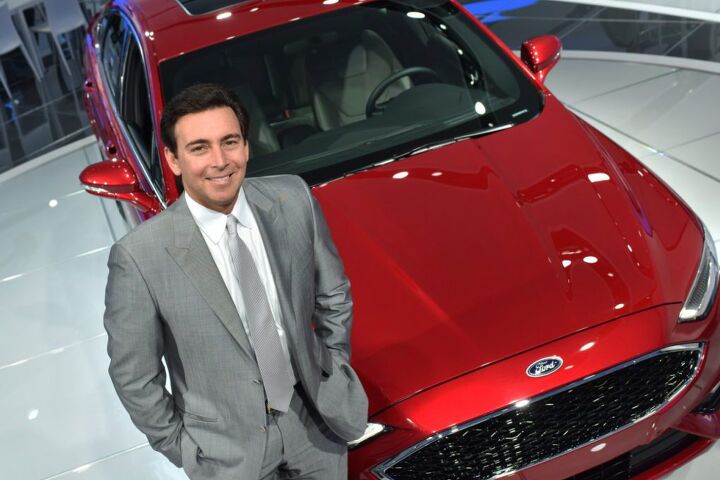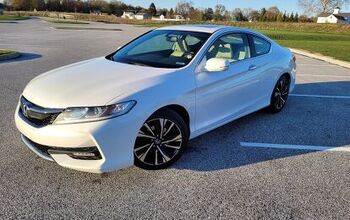Ford Miffed by EPA's 'Eleventh-Hour Politics,' Turns to Trump for Help

Ford Motor Company CEO Mark Fields doesn’t have kind words for the Environmental Protection Agency’s surprise decision to keep long-term fuel economy targets in place.
A mid-term review of corporate average fuel economy (CAFE) targets set in 2012 kicked off earlier this year, but the timing of the agency’s recent decision to maintain the 54.5 mile-per-gallon goal reeks of politics, Fields claims.
For automakers, reaching 54.5 mpg means extra costs. To avoid this, Ford is prepared to turn to its election campaign sparring partner — President-elect Donald Trump — for help.
The election saw no limit to the acrimony between Trump and Ford, but that was then, and there’s money at stake now. In a Friday interview with Bloomberg, Fields made it clear he wants Trump to pull levers in Ford’s favor.
“We will be very clear in the things we’d like to see,” Fields said.
The Trump wish list includes currency-manipulation rules (in the interest of fair trade), tax reform and safety rules for autonomous vehicles, but there’s something else Ford is prepared to lobby for: lowering that pesky CAFE target.
The timing of the EPA’s decision is widely seen as a political move, and Field’s doesn’t see it any other way. The review began this past spring, and a final determination wasn’t required until April 1, 2018. Even with the technological advancements seen since 2012, the regulators behind CAFE predict an industry-wide fuel economy average of 50.8 miles per gallon by 2025, meaning added pressure on automakers to go the extra mile.
Fields claims the decision disrupted the review.
“What happened was through eleventh-hour politics, it short-circuited a data-driven development of regulations,” he said. Fields promises to lobby Trump to lower federal and state fuel economy targets.
The extra mileage mandated by the EPA means automakers will likely fill the gap with money-losing electric cars and pricey hybrids. General Motors expects to lose $9,000 on every Chevrolet Bolt, so it’s not a recipe for profit. While Ford has plans to expand its EV offerings, it does so tentatively.
“In 2008, there were 12 electrified vehicles offered in the U.S. market and it represented 2.3 percent of the industry,” Fields said. “Fast forward to 2016, there’s 55 models, and year to date it’s 2.8 percent.”
“At the end of the day, you’ve got to have customers, so obviously, there would be pressure on the business if there’s not a market,” he claimed.
[Image: Ford Motor Company]

More by Steph Willems
Latest Car Reviews
Read moreLatest Product Reviews
Read moreRecent Comments
- Teddyc73 Oh good lord here we go again criticizing Cadillac for alphanumeric names. It's the same old tired ridiculous argument, and it makes absolutely no sense. Explain to me why alphanumeric names are fine for every other luxury brand....except Cadillac. What young well-off buyer is walking around thinking "Wow, Cadillac is a luxury brand but I thought they had interesting names?" No one. Cadillac's designations don't make sense? And other brands do? Come on.
- Flashindapan Emergency mid year refresh of all Cadillac models by graphing on plastic fenders and making them larger than anything from Stellantis or Ford.
- Bd2 Eh, the Dollar has held up well against most other currencies and the IRA is actually investing in critical industries, unlike the $6 Trillion in pandemic relief/stimulus which was just a cash giveaway (also rife with fraud).What Matt doesn't mention is that the price of fuel (particularly diesel) is higher relative to the price of oil due to US oil producers exporting records amount of oil and refiners exporting records amount of fuel. US refiners switched more and more production to diesel fuel, which lowers the supply of gas here (inflating prices). But shouldn't that mean low prices for diesel?Nope, as refiners are just exporting the diesel overseas, including to Mexico.
- Jor65756038 As owner of an Opel Ampera/Chevrolet Volt and a 1979 Chevy Malibu, I will certainly not buy trash like the Bolt or any SUV or crossover. If GM doesn´t offer a sedan, then I will buy german, sweedish, italian, asian, Tesla or whoever offers me a sedan. Not everybody like SUV´s or crossovers or is willing to buy one no matter what.
- Bd2 While Hyundai has enough models that offer a hybrid variant, problem has been inadequate supply, so this should help address that.In particular, US production of PHEVs will make them eligible for the tax credit.


































Comments
Join the conversation
Obama releases terrorists from GITMO. That's his legacy. Trump isn't even in office and he's already saving jobs. I can see why Ford and other companies are lining up to do business with Trump. That's what happens when you elect someone who is qualified to run the country. CEO's see this and want to jump on board.
So wading past all the politics in the comments, what I take from all this is: 1. This actually equates to 37 real world MPG. 2. They have many years to get there, and already have the technology. 3. The rules are no surprise to anyone because they were already in place. Yep, "whining" sounds like the right word. Ford makes a fine hybrid powertrain. They know how to build aluminum bodies. It wouldn't kill them to make a serious engineering effort on an EV. This ain't rocket science. As far as impact on buyers: Up-front sales prices will be higher. Buyers who can do math will look at true cost of ownership and see they come out ahead. Buyers who can't do math will be boned, per usual, paying even more profitable prices than before on the used-car side of the lot.